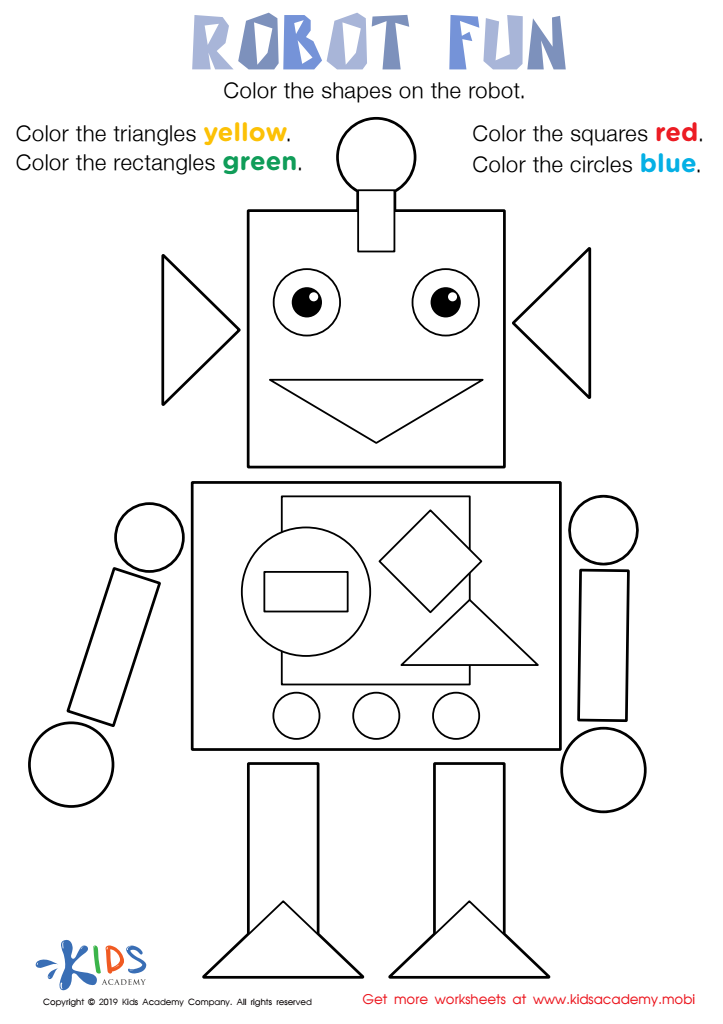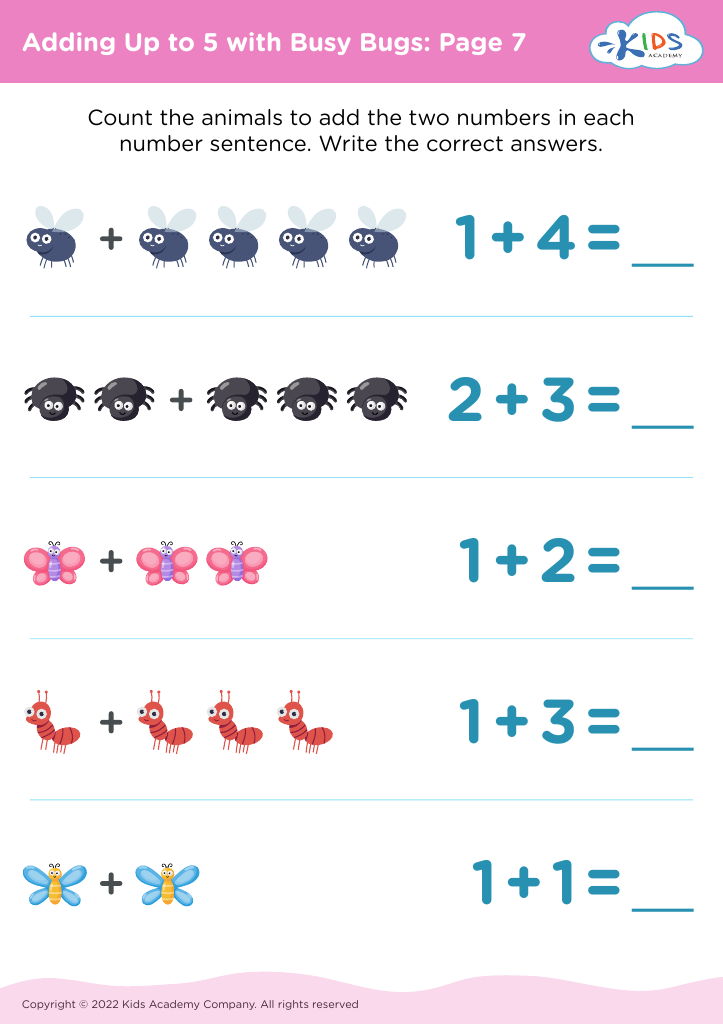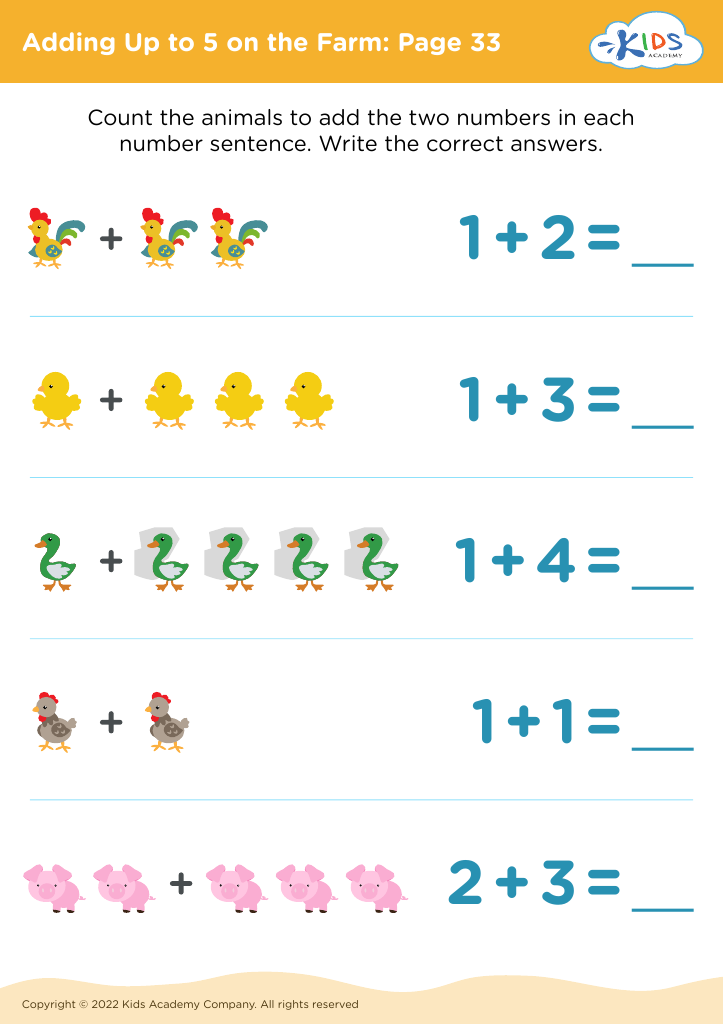Developing fine motor skills Math Worksheets for 4-Year-Olds
3 filtered results
-
From - To
Enhance your 4-year-old's mathematical journey with our fine motor skills math worksheets, designed to combine foundational math concepts with essential motor development. Each activity encourages children to grasp pencils correctly, draw shapes, and follow patterns, sharpening their coordination and dexterity. Our engaging and educational worksheets cover counting, number recognition, and simple addition while simultaneously improving hand-eye coordination and precision. Perfect for early learners, these worksheets make learning math both fun and interactive, laying a strong foundation for future academic success. Explore our collection to help your child build both mathematical skills and fine motor abilities seamlessly.


Robot Fun Worksheet
Developing fine motor skills and math abilities in 4-year-olds is crucial for their overall growth and future academic success. Fine motor skills involve the coordination of small muscles, particularly in the hands and fingers, which are essential for daily tasks such as writing, buttoning clothes, and using utensils. When children engage in activities that enhance these skills, they build the foundation for more complex tasks, aiding in greater independence and confidence.
Integrating math into these activities adds significant benefits. Early math skills, which include understanding numbers, shapes, patterns, and measurements, are critical for cognitive development. Children who are exposed to math concepts early are more likely to excel in these areas later in life. Incorporating math into fine motor skill activities, like counting while threading beads or sorting objects, reinforces both sets of skills simultaneously.
Parents and teachers should care about fostering these abilities because it sets the stage for lifelong learning. Strong fine motor skills and a robust foundation in math not only boost academic performance but also influence a child's problem-solving abilities and critical thinking. By nurturing these skills early on, we enable children to approach challenges with confidence and ingenuity, setting them on a path toward successful and fulfilling lives.

 Assign to My Students
Assign to My Students





.jpg)













